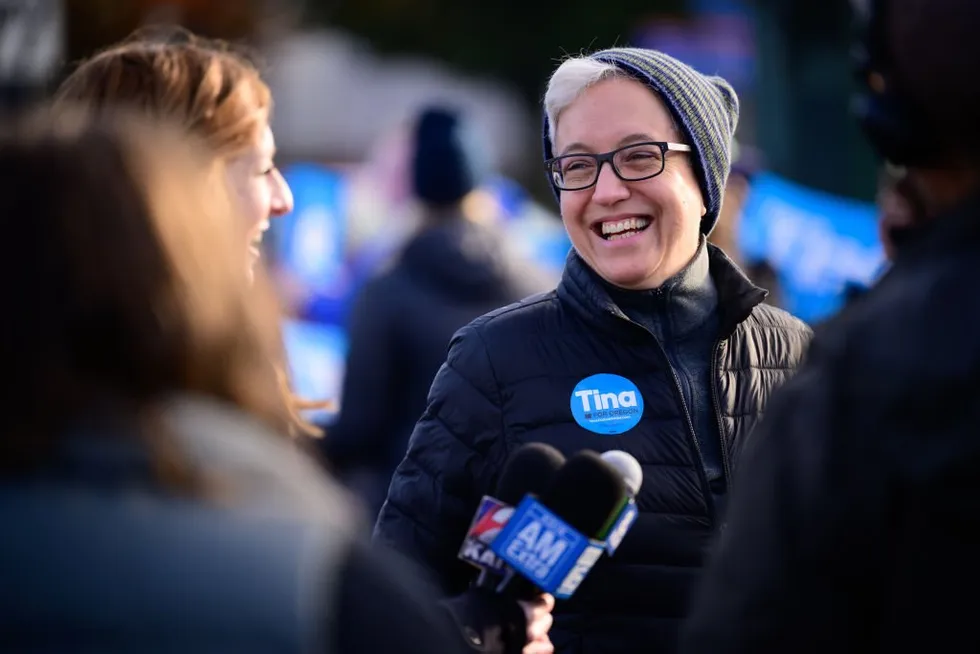Oregon governor re-criminalizes drug possession, marking end of another fatal leftist experiment

Oregon’s Democratic Gov. Tina Kotek ratified legislation Monday re-criminalizing the possession of small amounts of drugs, bringing a fatal leftist experiment to an end.
Narco state
In 2020, radicals in the Beaver State figured that the best way to tackle addiction and perceived “systems of oppression” would be to enable addicts to openly carry illicit drugs such as heroin, cocaine, and methamphetamin without legal consequence.
This decriminalization initiative took on the form of Measure 110, which reclassified possession of a controlled substance in Schedule I-IV from a Class A misdemeanor to a Class E violation.
The Democratic Party of Oregon, Multnomah Democrats, several medical unions, the ACLU of Oregon, NAACP Portland, NARAL Pro-Choice Oregon, and various other leftist outfits championed the measure.
The Oregon Association Chiefs of Police, various recovery groups, the Oregon Catholic Conference, and the Washington County Republican Party were among those who understood the decriminalization scheme was a recipe for disaster, reported Ballotpedia.
Naomi Schaefer Riley, a senior fellow at the American Enterprise Institute, warned that “such measures lower the risk and the cost of doing business for drug dealers and increase the supply of these drugs on streets across the country. Drugs will be cheaper and easier to get for adults already suffering from untreated mental illness, poverty or abuse. And the effects will be felt most severely by children.”
Washington County District Attorney Kevin Barton underscored, “This is a terrible idea. It’s disconnected to what’s best for Oregonians. It will lead to increased crime and increased drug use.”
Measure 110 went to a vote in November 2020 and 58.5% of voters indicated they were on board.
Kassandra Frederique, the executive director of the Drug Policy Alliance, touted the result as a “paradigm-shifting win and arguably the biggest blow to the war on drugs to date,” adding, “Oregon showed the world that a more humane, compassionate approach is possible.”
The law took effect in February 2021.
Fatal failure
It turns out normalizing the use of hard drugs was indeed “a terrible idea.” After all, earlier this year, Gov. Kotek, Portland Mayor Ted Wheeler, and Multnomah County Chair Jessica Vega Pederson each declared a 90-day state of emergency to address the out-of-control overdoses in the state.
Newsweek reported that between 2020 and 2022, overdose deaths in Oregon skyrocketed by 75%. By way of comparison, overdose death increased by only 18% nationally during the same two-year stretch. Opioid overdoses in the Beaver State during this period increased by 101% and meth-involved overdoses increased by 112%.
Violent crime increased by 17% after Measure 110 passed, while public drug use and homeless camps full of junkies became ubiquitous.
Portland remains one of America’s seedier cities, ranking 1 on Neighborhood Scout’s crime index where 100 is safest.
To make matters worse, as drugs were freely flowing through the streets of Oregon and crime was on the rise, the state also saw one of the largest increases in homelessness in the nation. The Oregonian reported that between 2020 and 2022, the state saw an increase in its homeless population from 3,304 homeless persons to roughly 18,000.
The public quickly soured on the decriminalization scheme, with even radicals like Mayor Ted Wheeler of Portland seeking some return to sanity.
Correcting a ‘huge mistake’
Kotek ratified House Bill 4002 on Monday, effectively reversing Measure 110.
Under the law, which had bipartisan support, a court can lock up an individual found in possession of illegal drugs for up to 180 days or sentence them to 18 months of probation. Jail sentences can be reduced “for any day the defendant is on release to a treatment program or previously served in-custody.”
The law, which prevents courts from imposing fines or fees for a drug possession conviction, won’t go into effect until Sept. 1.
The Statesman Journal reported that during testimony at the state legislature, the Oregon Public Defense Commission indicated it would have to hire 39 new full-time public defenders just to accommodate the glut of incoming suspects charged for drug offenses under the bill.
“We must acknowledge that Oregon’s number of unrepresented persons will likely increase due to House Bill 4002,” Kotek wrote in a letter to the speaker of the state House and the president of the state Senate.
While critical of Measure 110 and its fallout, Wheeler still appears unwilling to condemn the idea animating the decriminalization movement, telling the New York Times that “the state botched the implementation. … To decriminalize the use of drugs before you actually had the treatment services in place was obviously a huge mistake.”
“The truth is that addiction rates and overdose rates skyrocketed. I personally do not attribute all of that to the passage of Measure 110,” added Wheeler. “It was very easy for the public to draw a line between the passage of Measure 110, the decriminalization of hard drugs, the increase in addiction and the increase in overdoses — and criminal activity associated with drugs.”
Like Blaze News? Bypass the censors, sign up for our newsletters, and get stories like this direct to your inbox. Sign up here!








